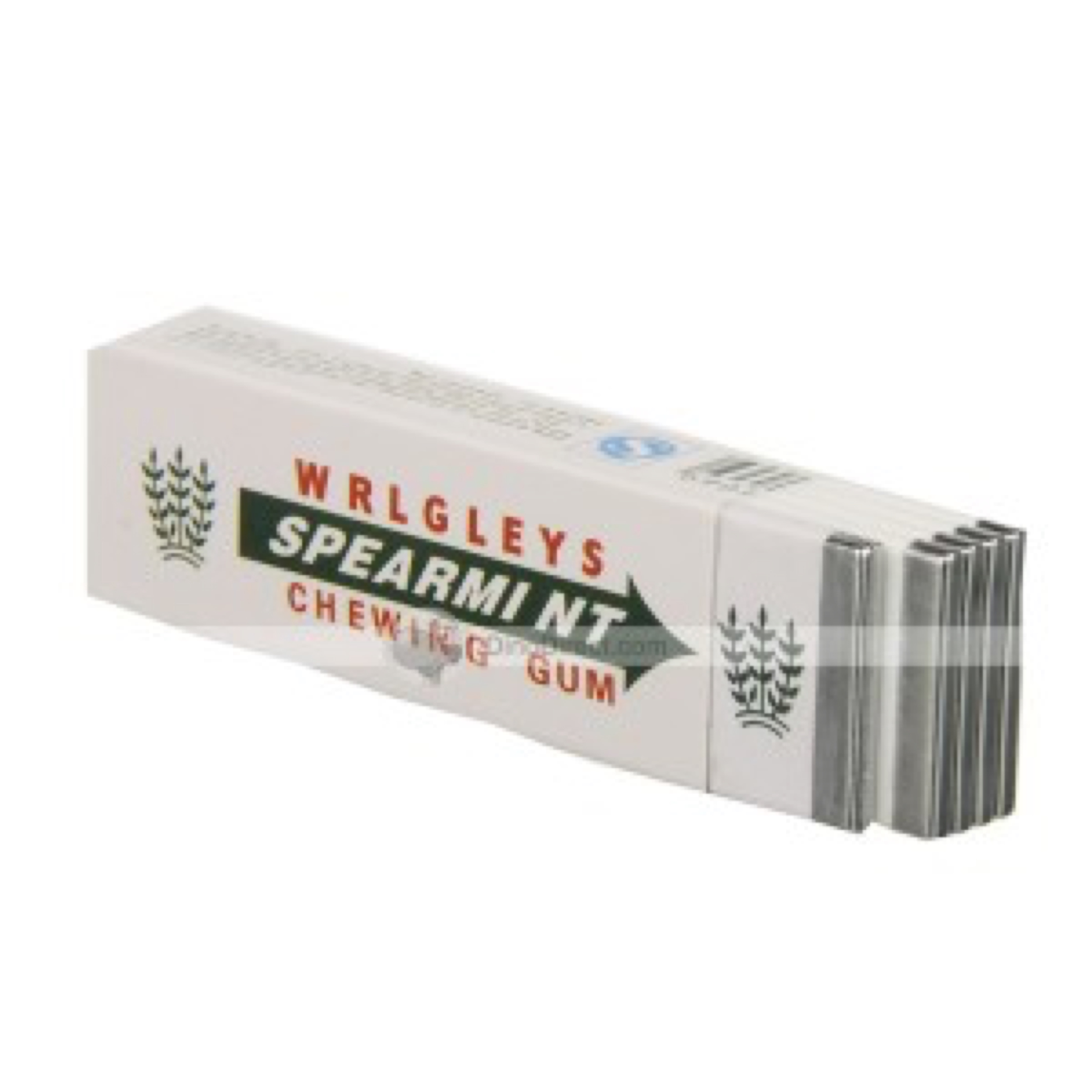If You Are a Chewer of Chewing Gum, Try to Wean Yourself of This Habit
 Chewing gum was first invented in 1870 and has been going strong ever since but interestingly, it was invented by mistake - almost. The substance was being researched as a substitute for rubber. According to Wrigley.com (a well known company that manufactures and distributes chewing gum) they have their own science institute - The Wrigley Science Institute – which is the first organization of its kind committed to advancing and sharing scientific research that explores the benefits of chewing gum.
Chewing gum was first invented in 1870 and has been going strong ever since but interestingly, it was invented by mistake - almost. The substance was being researched as a substitute for rubber. According to Wrigley.com (a well known company that manufactures and distributes chewing gum) they have their own science institute - The Wrigley Science Institute – which is the first organization of its kind committed to advancing and sharing scientific research that explores the benefits of chewing gum.
Wrigleys have this to say...
- Some of that preliminary research has shown that chewing gum is useful for stress relief and to help with focus and concentration. While more research is needed, results of some of the studies indicate that chewing gum may be helpful in easing tension and improving alertness.
- Chewing sugar-free gum after eating or drinking is clinically proven to be an important part of good oral health. It stimulates your most important natural defence against tooth decay - saliva - which, in turn helps protect your teeth by neutralizing plaque acids, re-mineralizing enamel to strengthen teeth and washing away food particles.
- Chewing gum before snacking helps reduce hunger, diminishes cravings for sweets, and decreases snack intake by 36 calories.
But there are serious disadvantages with chewing gum
And these do not take into account the sticky mess they can leave when carelessly discarded after chewing.
- The sugar-free chewing gum usually has aspartame in place of sugar and that as many will know is a health hazard all of its own. Short and long term use of aspartame has been closely linked with cancer, diabetes, neurological disorders and birth defects. It is really not something you should have in your mouth – ever. In addition, chewing gum has lots of ingredients that are also a cause for concern.
- Some cosmetic surgeons believe chewing gum can give us a wrinkle problem. According to one cosmetic surgeon, he has noticed that many of his patients who are gum chewers have a certain pattern of wrinkles around their mouth. Many experts attribute the wrinkle connection to two things. First, there’s the repetitive motion of chewing, which causes lines and folds around the mouth due to muscle overuse and second, chewing gum can dislodge dermal fillers that people have injected into their faces to plump up their wrinkles.
- Chewing gum causes unnecessary wear and tear of the cartilage that acts as a shock absorber in your jaw joints. Once damaged, this area can create pain and discomfort for a lifetime.
- You use eight different facial muscles to chew. All that unnecessary chewing can create severe tightness in two of these muscles, located close to your temples, putting pressure on those nerves that supply this area of your head, contributing to painful headaches.
- Then there are six salivary glands located in the mouth that are stimulated to produce and release saliva whenever you chew. But producing a steady stream of saliva for the sole purpose of chewing gum is a waste of energy and resources that could instead be used for essential metabolic activities.
- Chewing gum fools your body into believing it is digesting something, so it spends all the time you are chewing in supplying digestive enzymes and wasting them on something unessential.
- If your gum isn’t sweetened by aspartame, it is probably sweetened by sugar. Sugar is most likely the single greatest dietary cause of chronic health problems like cancer, heart disease, diabetes and emotional disorders If you must chew gum, try to limit the time spent chewing and look for a healthy version with no chemicals and sweetened with Xylitol which is a natural sugar substitute.
Although chewing gum is not ideal for your health, it can be very useful for other things!
Here are some tips and other uses for chewing gum.- A leaky car radiator can be temporarily plugged with chewing gum.
- If you lose a ring or some other piece of jewelery down the drain, stick a well chewed piece of chewing gum on to the bottom of a sinker which is attached to string or fishing line and go fishing as usually the gum will stick to the lost item and you can carefully reel it in.
- Chewed gum can be used to keep a loose pane of window glass in place until you can get to the store to buy some genuine putty.
- Unused mint flavored gum (it does not matter if they are still in their wrappers or not) will deter all kinds of bugs – so put some down at your insect's favorite entrance spot.




